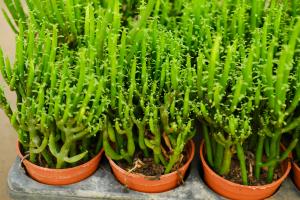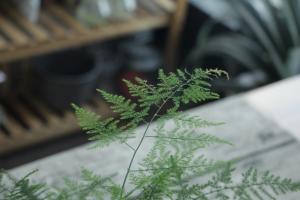Introduction
Spraying water on plants is a common practice among gardeners, farmers, and even homeowners who want to keep their lawns green and healthy. While some people use a watering can to water their plants, others prefer to use a hose and sprayer to apply water more efficiently. In this article, we will explore the benefits of spraying water on plants and why it is a good practice to adopt.
Watering is Essential for Plant Growth
The first and most obvious benefit of spraying water on plants is that it is essential for growth. Plants need water to survive, and without it, they will wither and die. Watering helps plants to absorb nutrients from the soil and to carry out important biological processes that are necessary for growth.
When plants receive an adequate amount of water, they grow strong and healthy, producing more leaves, flowers, and fruits. Proper watering also makes plants more resilient to diseases, pests, and environmental stressors like drought or extreme temperatures.
Spraying Water Helps Distribute Nutrients
Another important advantage of spraying water on plants is that it helps distribute nutrients evenly throughout the soil. When you apply water to the soil, it dissolves and transports nutrients like nitrogen, phosphorus, and potassium to the roots of the plants.
This not only helps the plants to grow, but it also encourages healthy microorganisms to thrive in the soil. These microorganisms break down organic matter and release nutrients that are essential for plant growth. When you spray water on your plants, you are indirectly fertilizing them and promoting a healthy ecosystem in the soil.
Spraying Water Can Help Control Pests
Spraying water on plants can also help control pests, especially those that are prone to attacking leaves and flowers. Many insects and mites dislike water, and when you spray your plants with a fine mist, you may be able to deter them and prevent infestations from occurring.
Moreover, spraying water on plants can physically remove pests that are already present, such as spider mites, aphids, or whiteflies. These pests are small and delicate, and a gentle spray of water can knock them off the plant and prevent them from causing further damage.
Spraying Water Can Improve Air Quality
Finally, spraying water on plants can improve the air quality around them, especially in dry or dusty environments. When the leaves of plants are moistened, they can trap and remove dust particles, smoke, and other pollutants from the air.
This can be particularly beneficial for people with respiratory problems or allergies, as it can decrease the amount of airborne irritants that can trigger symptoms. Spraying water on plants can also humidify the air, making it more comfortable to breathe and improving the general sense of well-being in the surroundings.
Conclusion
In summary, spraying water on plants is a simple yet effective practice that can benefit both the plants and the environment. By providing them with adequate moisture, nutrients, and protection from pests, you can help your plants to grow healthy and strong, while also promoting a cleaner and more sustainable ecosystem.
Whether you are a seasoned gardener or a novice plant enthusiast, adding a routine of watering and spraying to your plant care regimen can be a great way to enhance their beauty and vitality. So, the next time you reach for the hose, remember that you are doing a good thing for your plants and for nature as a whole.

 how many times do yo...
how many times do yo... how many planted tre...
how many planted tre... how many pine trees ...
how many pine trees ... how many pecan trees...
how many pecan trees... how many plants comp...
how many plants comp... how many plants can ...
how many plants can ... how many plants and ...
how many plants and ... how many pepper plan...
how many pepper plan...






























